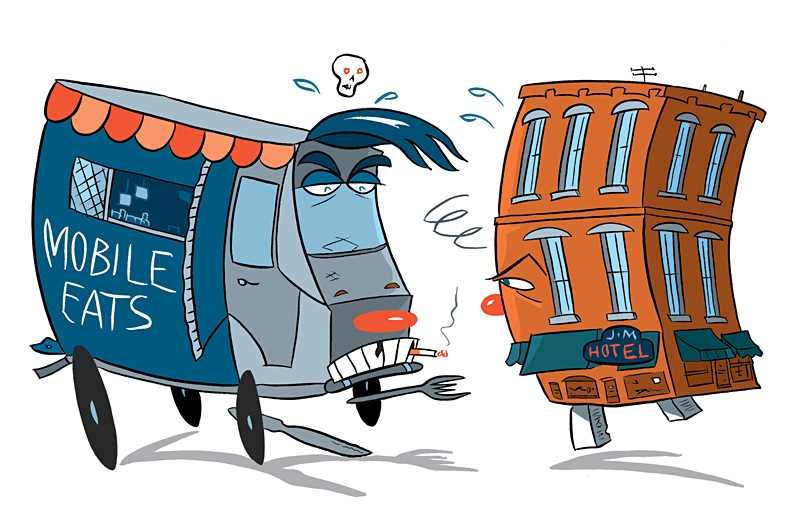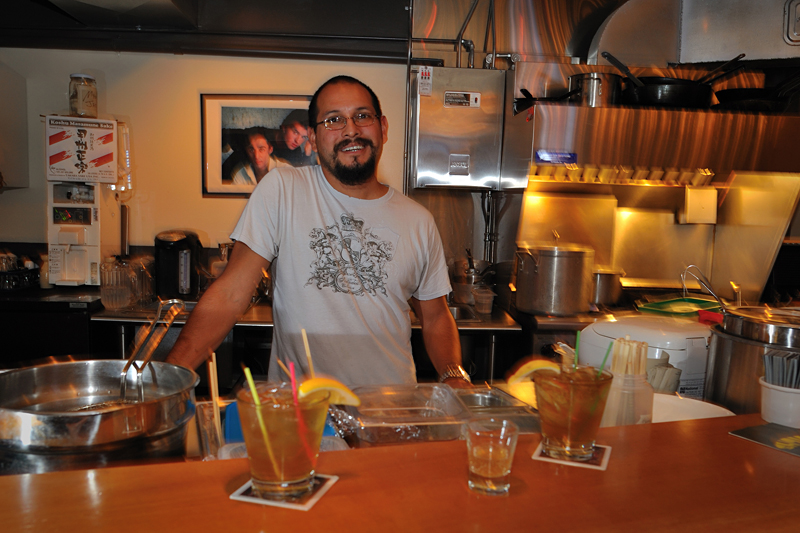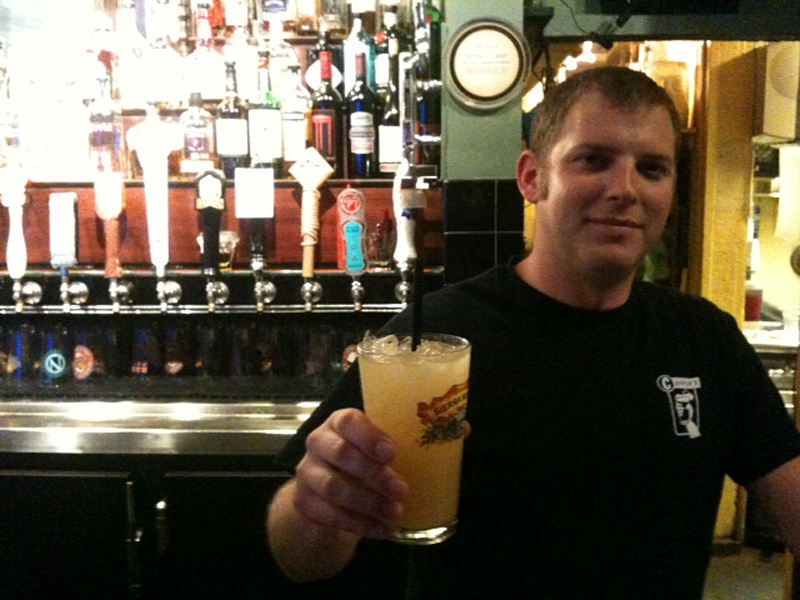Casting a longing eye at Portland’s many vibrant corners where burgers, gyros, and poutine are served from wagons and carts into the wee hours of the morning, the Seattle Department of Planning and Development decided over a year ago that our city should have something similar. Bolstered by the success of Skillet and Marination Mobile (among others), and the high turnout at recent mobile-food fairs, the DPD now wants to change city laws to allow street vendors to set up semi-permanent shop on sidewalks and in city parks.
The only problem is finding a place to put them.
Last week, DPD planning advisor Gary Johnson pitched the Pioneer Square Preservation Board on allowing vendors in Occidental Park, as well as streets and sidewalks around the ‘hood. The Board’s reaction was ambivalent, bordering on hostile.
To make food trucks en masse possible, the city would have to overturn laws dating back to the ’80s that restrict street vendors to private property—with the exception of a strip near the stadiums on game days and for occasional one-time events. And even there they’re tightly regulated. Under the proposed new rules, food carts could get a permit to regularly occupy designated public areas.
The city is considering possible test sites in urban parks, like Occidental and Westlake, and on wide streets or sidewalks, including a stretch along Broadway and in Pioneer Square. But finding support for the pilot project hasn’t been easy. “As the project is feeling more real to people, concerns—particularly in this economy, with retail businesses struggling—concerns are elevating,” Johnson says. “I think people are, unfortunately, seeing it as a threat.”
Pioneer Square resident and former Preservation Board member Sara-Jane Bellanca certainly does. Following Johnson’s presentation, she wasted no time getting to her feet to declare her opposition. She said mobile eateries tend to show up with tables, chairs, signs, and condiment stations, cluttering up the park and streets. The city already does a bad job of keeping in line the vendors who line Occidental Avenue before Mariners games, she claims.
Board member Erin Doherty added that there’s a fine line between vibrancy and chaos. Gallery owner Catherine Person said she is concerned that carts on streets or sidewalks would block her small storefront, keeping people away.
Johnson came ready to respond with the results of a survey from Portland, which he says shows that 58 percent of business owners in the Rose City’s downtown found the food carts increased foot traffic. But what he didn’t mention was the vitriolic relationship in Portland between food carts and restaurants, who say the carts have an unfairly easy permitting process, undercutting traditional establishments.
Johnson assured the board that nothing has been decided. The plan would require city council approval, and if there’s mass opposition, that’s unlikely. So if you were hoping to start selling sliders out of your van in Occidental Park, you might want to first send a few to the people who run Pioneer Square, because they’re ready to resist.







